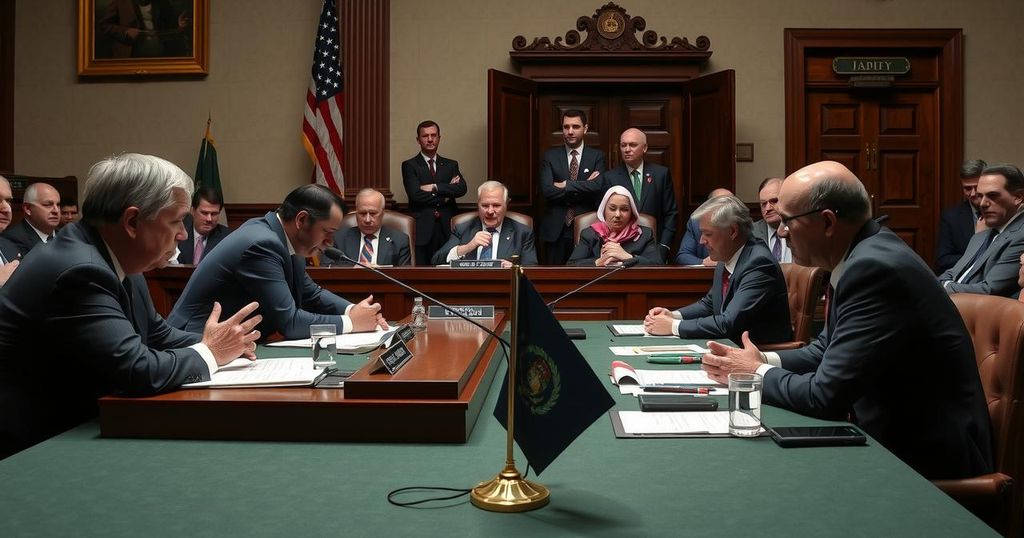Secretary of State Antony Blinken faced congressional criticism over the Afghanistan withdrawal during a hearing, where he defended the Biden administration’s actions as bound by a deal negotiated by former President Trump. Critics claim the withdrawal led to chaos and left many vulnerable to Taliban reprisal, emphasizing the need for accountability and a reevaluation of U.S. foreign policy.
On Wednesday, U.S. Secretary of State Antony Blinken appeared before the House Foreign Affairs Committee to address concerns regarding the Afghanistan withdrawal, a contentious issue during President Joe Biden’s administration. During his testimony, Texas Republican Representative Michael McCaul criticized the withdrawal, stating, “This catastrophic event was the beginning of a failed foreign policy that lit the world on fire,” and urged accountability from Blinken for the perceived failures involved in the process.
Blinken extended his condolences to the families of U.S. service members who lost their lives during the evacuation and faced interruptions from protesters condemning the withdrawal. He reiterated the Biden administration’s defense, highlighting that the pullout was dictated by a deal negotiated by former President Donald Trump, suggesting that failure to honor this agreement would have led to renewed violence against American forces and a resurgence of the Taliban’s offensive against major Afghan cities.
This hearing follows a report released by House Republicans alleging systemic failures in the withdrawal that ignored Trump’s role in initiating the process. They accused Biden’s administration of mishandling the situation, despite previous analyses attributing accountability for the crisis to earlier administrations, including Trump’s involvement in the 2020 withdrawal agreement, which culminated in the Taliban’s quick takeover of Afghanistan. This chaotic exit resulted in many individuals, including American citizens and Afghan allies, being left vulnerable to Taliban reprisals, necessitating a reevaluation of U.S. foreign policy and its implications for global stability.
The withdrawal from Afghanistan, which culminated on August 30, 2021, during President Biden’s term, has been a focal point of criticism from Republican lawmakers. The operation, characterized by its chaotic and potentially perilous consequences for numerous civilians and allies, has raised questions about the decision-making processes leading to the event. Key to these discussions is a withdrawal agreement made by previous President Trump with the Taliban, which many argue set the stage for the swift takeover of Afghanistan by the insurgent group after U.S. forces left the country.
In summary, Secretary Antony Blinken’s recent testimony underscores the complexities and ramifications of the U.S. withdrawal from Afghanistan. While Blinken attributed responsibility to the prior administration’s agreement with the Taliban, criticism persists regarding the execution of the withdrawal and its consequences for those left behind in Afghanistan. This ongoing debate highlights the urgent need for a reassessment of U.S. foreign policy and its implications for international relations and global security.
Original Source: www.mercurynews.com






